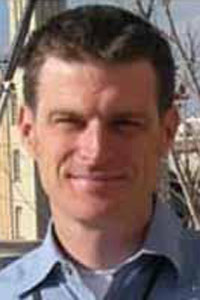Sponsored by the UCLA Brain Mapping Center Faculty
The focus of these talks is on advancing the use of brain mapping methods in neuroscience with an emphasis on contemporary issues of neuroplasticity, neurodevelopment, and biomarker development in neuropsychiatric disease.
Hosted By: Shantanu Joshi, PhD, Neurology, UCLA
 |
Chris Abbot, MD, MS Associate Professor, Department of Psychiatry Chief of the Neuromodulation Division University of New Mexico |
Electroconvulsive therapy (ECT) remains the gold-standard treatment for patients with depressive episodes. During a typical four-week ECT series, most depressive episodes remit, and formerly suicidal or psychotically depressed patients will resume their premorbid levels of functioning. Independent of the antidepressant effect of ECT, many patients experience debilitating but transient cognitive effects such as attention and memory deficits. Both the stimulus delivery (electrode placement, pulse amplitude, and pulse width) and seizure induction appear to work in synergy, but the underlying mechanism of action for successful response has yet to be fully elucidated. This presentation will discuss the clinical and neurocognitive impact of targeted medial temporal lobe engagement as a function of pulse amplitude, one of several variable factors influencing the ECT charge.